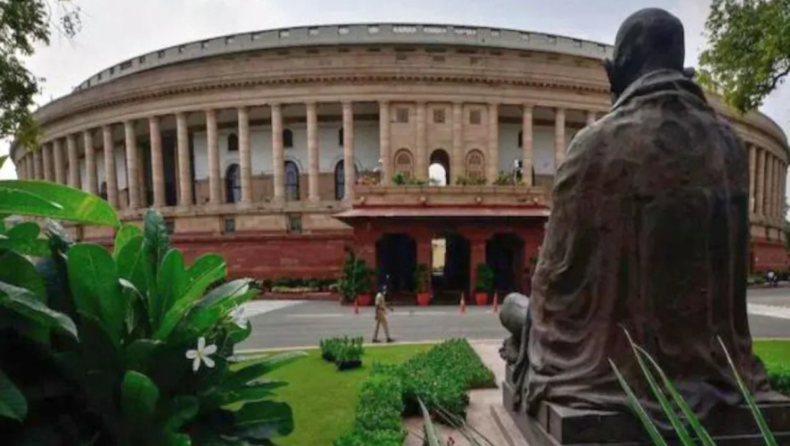On Monday, the Union Minister of State for Home Affairs, Ajay Misra Teni introduced Criminal Procedure(Identification) Bill in the Lok Sabha amidst protesting Opposition claiming it will help the investigating agencies and “increase prosecution”.
In the Lok Sabha, the Centre proposed a Bill that would allow to keep a record of the “measurements” and “biological samples” of convicts and non-convicts to help in prosecution. On Monday, Ajay Misra Teni, Union Minister of State for Home Affairs introduced the Bill called ‘The Criminal Procedure (Identification) Bill, 2022’.
The Opposition parties slammed the Bill calling it “unconstitutional”. The voting in the Lok Sabha resulted to 120 votes in favour and 58 votes against it. The Bill is passed will replace the Identification of Prisoners Act, 1920.
Opposition’s protests

Protesting against the new bill, MP Manish Tewari pointed out that ‘biological samples and their analysis’ mentioned in the Bill could include narco analysis and brain mapping. If it is done forcefully it violates Article 20(3) of the Constitution of India.
Mr. Tewari said that it is a violation of the Right to be Forgotten within the Right to Life under Article 21 of the Constitution in regards to the provision of keeping these records for upto 75 years.
MP NK Premachandran from Kerala also opposed the Bill saying it is a violation of the basic rights of an individual.
Centre’s defence
In the 1920 Act of the Identification of Prisoners, the term “measurements” is limited to finger and foot prints of a limited number of convicts and non-convicts; or photographs under the order of the Magistrate.
Minister Teni said that advanced “measurement’’ techniques are giving credible results and are being recognised by the whole world. The 1920 Act is 102 years old and does not have provisions for taking these body measurements as much of the scientific and technological advancement was yet to be developed .
The Opposition leader Adhir Ranjan Chowdhury raised question over cases against the minister. Ajay Misra Teni defended that he had filed a nomination for Lok Sabha in 2019 and he will immediately resign from his position and politics if he goes to jail at any point of time.
Mr. Teni further said the bill will help in investigation and also in quick prosecution. He added the introduction of this bill may bring an increase in conviction rates in courts.
The Criminal Procedure(Identification) Bill
The Bill states that expanding the “ambit of persons” whose measurements are to be recorded will help investigating agencies to obtain legal evidence easily and prosecute the criminal.
The “measurements” mentioned will include finger impressions, palm-print, foot-print impressions, photographs, iris and retina scan, physical, biological samples and their analysis.
The National Crime Records Bureau (NCRB) will have access to collect, store and preserve the record of measurements and have power of destruction and disposal of records.

Under this bill a magistrate can direct law enforcement officials to collect measurements and photographs in case of a specified category of convicted and non-convicted persons. A magistrate can also ask any person to give their measurements.
Police or prison officials can also collect these “measurements” of any person who refuses to comply.
Additionally, the Bill also permits the police to record signatures, handwriting or other behavioral attributes referred to in section 53 or section 53A of the Code of Criminal Procedure, 1973.
According to Bill, all convicted person, arrested or held under any preventive detention law will have to give these “measurements” to a police officer or a prison official.
These records of the measurements will be stored in digital or electronic form for 75 years from the date of collection.
The Bill also empowers all Union Territory administrations to order an appropriate agency to collect, preserve and share the measurements of a person of interest in their respective jurisdictions.
Refusal to comply
If a person resists or refuses to comply to the taking of measurements under this Act, it shall be considered an offence under the section 186 of the Indian Penal Code (IPC).
The Bill states it is essential to introduce provisions for modern techniques to replace previous limited methods of recording biometrical measurements.
Published By : Revathy G Sanal
Edited By : Subbuthai Padma













